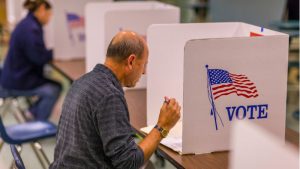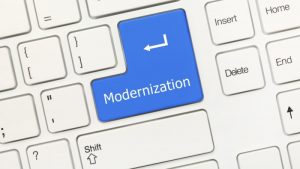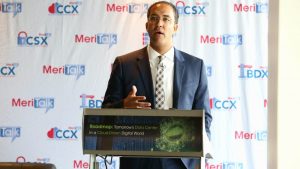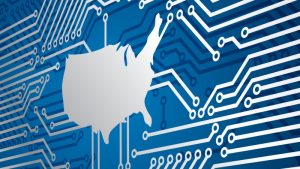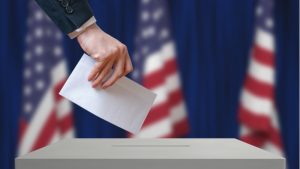Broadband access is essential in the 21st Century. To achieve availability across the country, the Federal government must have accurate broadband access data to ensure that funds and resources are being spent to expand coverage to unserved areas. However, accuracy issues with the broadband map have plagued the Federal Communications Commission (FCC)–the Federal entity tasked with compiling the data.
In another effort from Congress to expand transparency in U.S. election systems after, Sens. Ben Cardin, D-Md., Amy Klobuchar, D-Minn., and Chris Van Hollen, D-Md. announced today that they will reintroduce their Election Systems Integrity Act.
Sen. Kamala Harris, D-Calif., on Thursday introduced the Digital Service Act, which would increase funding for the U.S. Digital Service (USDS) and provide a conduit for state and local governments to get USDS grants to fund information technology (IT) modernization efforts.
Rep. William Hurd, R-Texas, stressed at IBM’s Think Gov event today that America needs to lead the world in developing 5G wireless networks and artificial intelligence (AI) capabilities, especially with China on the rise as a voracious international competitor, and said successful development and application of the two technologies are inextricably linked.
The Congressional Budget Office (CBO), in a report released Friday, pegged the cost of H.R. 1–the For the People Act of 2019–at $2.6 billion over the next five years, with $1.5 billion of that going for states and counties to purchase new voting technology.
A group of Federal lawmakers from Louisiana penned an op-ed in the Washington Times on Feb. 13 urging President Trump to increase funding for cybersecurity education.
With the 2020 national election cycle on the horizon, House Homeland Security Committee Chairman Bennie Thompson, D-Miss., convened a hearing Wednesday to examine the how the United States was working to secure its elections, and despite some partisan squabbling from members over the issue, a senior Homeland Security Department (DHS) official testified that election security is on the upswing.
Top officials from communications industry trade groups told members of the Senate Commerce, Science, and Transportation Committee today what few, if any, in the hearing room would disagree with: the United States needs to win the global race to leadership in 5G communications services and technologies.
The National Association of State Chief Information Officers (NASCIO) released its annual list of Federal advocacy priorities today which prominently feature cybersecurity regulations and state CIO/CISO roles in Federal government efforts.


